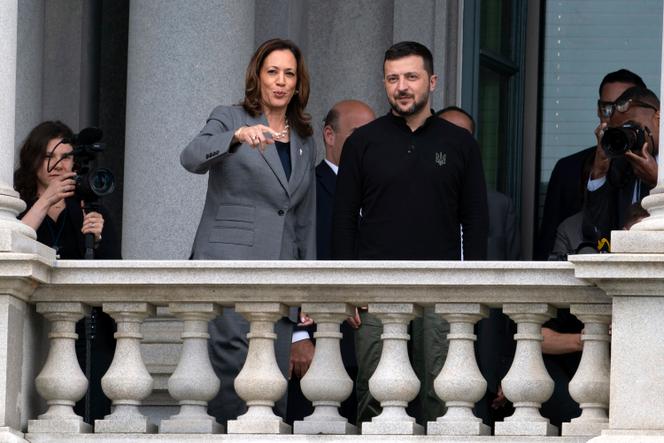


Volodymyr Zelensky visited the White House on Thursday, September 26, to outline his "victory plan" to President Joe Biden. The key moment, however, was his joint speech with Vice President Kamala Harris, which broke from custom and signalled Zelensky's involvement in the US election campaign.
The Democratic candidate was thus able, in a solemn setting, to reaffirm the political and military support for Ukraine initiated by Biden at the start of the Russian offensive in February 2022. She was also able to highlight her contrast with Donald Trump. "The US cannot and should not isolate ourselves from the rest of the world," said Harris. "Isolation is not insulation."
According to the vice president, support for Ukraine is not a matter of "charity," but of US "strategic interest." Without quoting Trump's running mate, Senator JD Vance, Harris noted that "some" in her country "would instead force Ukraine to give up large parts of its sovereign territory, who would demand that Ukraine accept neutrality and would require Ukraine to forego security relationships with other nations." She continued, "These proposals are the same as those of Putin, and let us be clear, they are not proposals for peace. Instead, they are proposals for surrender, which is dangerous and unacceptable."
This rare interlude of international affairs in the presidential campaign was also intended as a message to European allies, reassuring them of continued efforts despite growing fatigue. Zelensky reiterated his gratitude for American military support, which aims to strengthen the Ukrainian position in the event of negotiations. "We must end this war," said the Ukrainian president. "We need a just peace." According to National Security Council spokesman John Kirby, Zelensky outlined to Biden the "broad contours of his victory plan," though the term "broad" seemed to convey some underlying US dissatisfaction.
In a New Yorker interview published on September 22, Zelensky called the idea that Biden might reject his plan a "horrible thought." He added: "It would mean that Biden doesn't want to end the war in any way that denies Russia a victory. And we would end up with a very long war – an impossible, exhausting situation that would kill a tremendous number of people." This public pressure is reportedly irritating Biden's team, as they seek clearer proposals for potential negotiations while also managing disagreements within the West over the security guarantees Kyiv would receive.
You have 48.01% of this article left to read. The rest is for subscribers only.
